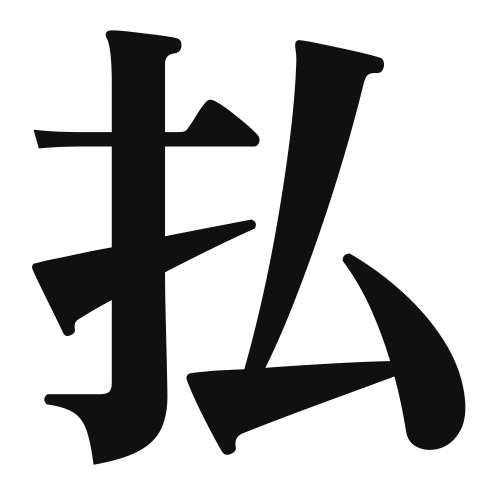1. Overview of Meaning
The kanji 払 (harau) means “to pay” or “to brush off.” It is commonly used in contexts related to payment, clearing away, or removing something.
2. Formation and Radical
Formation of the Kanji: The kanji 払 is a phonetic compound (形声文字) that combines the radical for “hand” (扌) with the phonetic component “発” (hatsu), which suggests the action of moving or doing something.
Radical: The radical of 払 is 扌, which is related to actions performed by the hand.
3. Examples of Usage
Common Words and Phrases:
- 払う (harau) – to pay
- 支払い (shiharai) – payment
- 払戻し (harai modoshi) – refund
Example Sentences in Daily Conversation:
- 今月の家賃を払いましたか? (Kongatsu no yachin o haraimashita ka?) – Did you pay the rent this month?
- ゴミを払ってください。 (Gomi o haratte kudasai.) – Please brush off the trash.
4. Synonyms and Antonyms
Similar Kanji:
- 支払 (shiharai) – payment, which emphasizes the act of paying.
- 清算 (seisan) – settlement, which refers to the process of clearing debts.
Antonyms:
- 受け取る (uketoru) – to receive, which is the opposite action of paying.
5. Cultural and Historical Background
Relation to Japanese Culture: The concept of payment and clearing debts is significant in Japanese culture, reflecting values of responsibility and respect in financial transactions.
Proverbs and Idioms:
- 「払うものは払う」 (harau mono wa harau) – “What needs to be paid, should be paid,” emphasizing the importance of fulfilling obligations.
